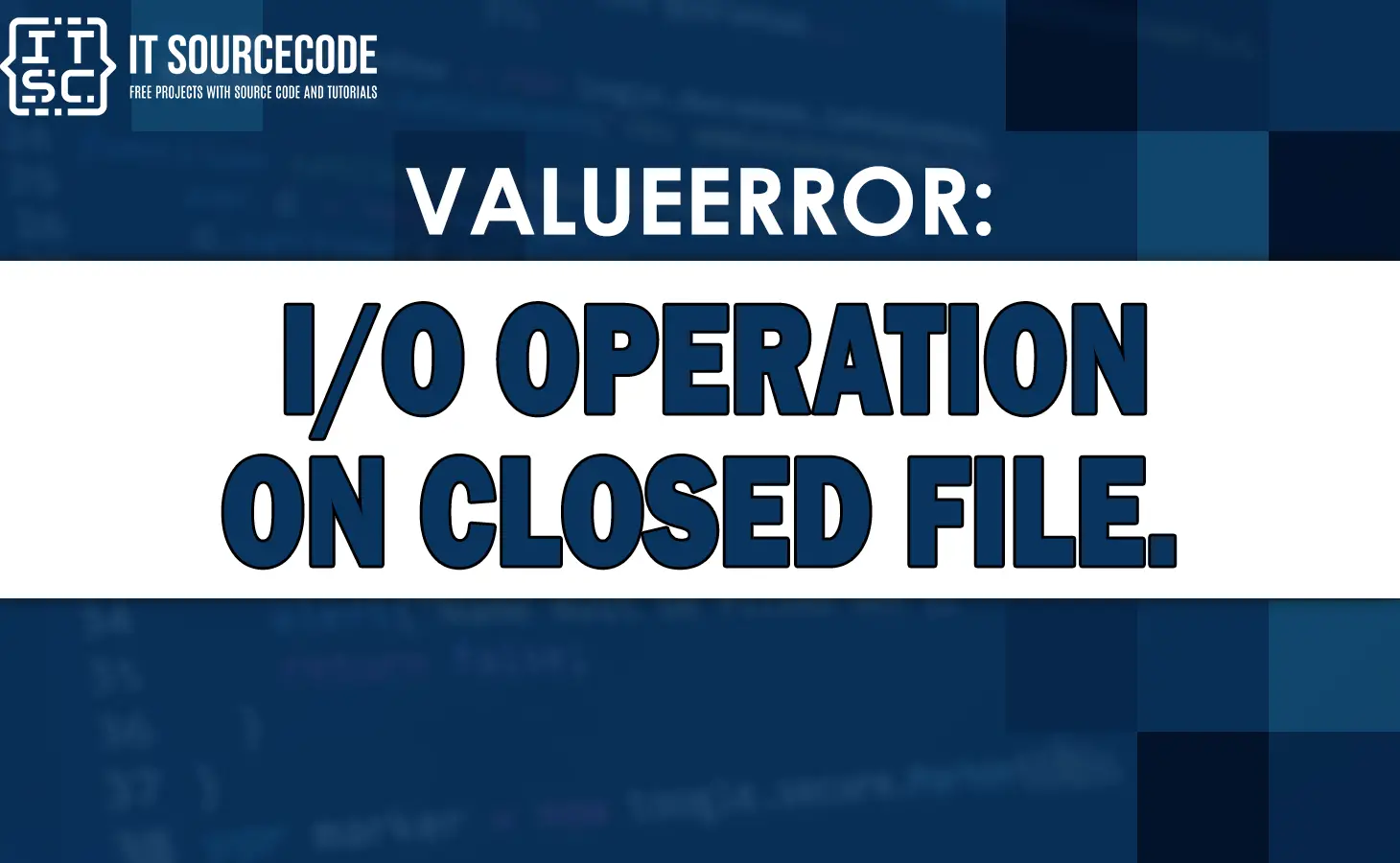One of the error you may encounter while working with file operations in Python is:
Valueerror: i/o operation on closed file.
This error usually occurs when a file that has already been closed is being accessed or manipulated.
What is the ValueError I/O operation on closed file error?
The ValueError: I/O operation on closed file is a common error that occurs when you attempt to perform file operations on a file that has already been closed.
How to Reproduce the Error?
In Python, when you open a file for reading or writing, it is important to close the file once you’re done with it.
If you forget to close the file or erroneously attempt to operate on a closed file object, you’ll encounter this error.
Let’s take a look at an example of how to reproduce the error:
file = open("data.txt", "r")
file.close()
# Attempting to read from a closed file
data = file.read()
Output:
Traceback (most recent call last):
File “C:\Users\Dell\PycharmProjects\Python-Code-Example\main.py”, line 5, in
data = file.read()
ValueError: I/O operation on closed file.
In this example code, we open a file named “data.txt” for reading (“r” mode) and then immediately close it using the close() method.
However, we incorrectly try to read from the file object after closing it, resulting in the ValueError.
Common causes of the ValueError
Understanding the common causes of the ValueError can help you avoid it in the future.
Here are the common causes of this error:
- Forgetting to close a file
- Using a closed file object
- Incorrect order of operations
Now that we have understand the common causes let’s move on to solutions to resolve this error.
How to Solve the error i/o operation on closed file?
Here are the following solutions to solve the i/o operation on closed file error:
Solution 1: Verify if the file is already closed
Before performing any operations on a file, it is important to check if the file is already closed.
You can use the closed attribute of the file object to define its status.
Here’s an example:
file = open("data.txt", "r")
# Some operations on the file
if file.closed:
# Handle the file closed situation
else:
# Continue with file operations
By checking the closed attribute, you can avoid attempting I/O operations on a closed file and handle the situation properly.
Solution 2: Check for incomplete closing of the file
To prevent the ValueError: I/O operation on closed file error, make sure that the file is not closed incompletely.
You must double-check your code to confirm that all essential operations on the file have been completed before closing it.
Here’s an example code:
file = open("data.txt", "w")
# Some operations on the file
# Ensure all necessary operations are performed
file.close()
# Closing the file at the appropriate time
By closing the file at the proper time, you can avoid encountering the error when attempting to access the file later.
Solution 3: Implement exception handling
To handle exceptions related to file operations effectively, you can implement an exception handling strategy.
By closing the file operations in a try block and closing the file within the corresponding final block, you can ensure the file is closed even if an exception occurs.
Here’s an example code:
file = open("data.txt", "r")
try:
# Some operations on the file
finally:
# Closing the file in the finally block
file.close()
This method, the file will always be closed, regardless of whether an exception is raised or not, avoiding the ValueError.
Solution 4: Use the with statement for file operations
The with statement in Python provides a cleaner and more secure way to handle file operations.
It automatically takes care of closing the file, even in the presence of exceptions.
Here’s an example code:
with open("data.txt", "r") as file:
# Some operations on the file
Using the with statement it will remove the require to explicitly close the file and ensures proper handling of file resources, preventing the ValueError.
FAQs
You can check if a file is closed in Python by accessing the closed attribute of the file object. If the attribute is True, it means the file is closed; otherwise, it’s open.
No, once a file is closed, it cannot be reopened. You need to open a new file object to perform further operations on the file.
The ValueError: I/O operation on closed file error occurs when you attempt to perform file operations on a file that has already been closed.
It usually happens due to forgetting to close a file or mistakenly trying to access a closed file object.
Conclusion
The ValueError: I/O operation on closed file. error can be frustrating when encountered during file operations.
However, by understanding the causes, and applying the provided solutions in this article, you can effectively resolve this error and ensure smooth file handling in your Python programs.

